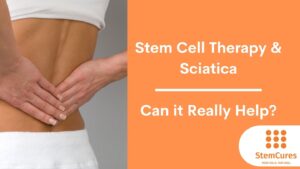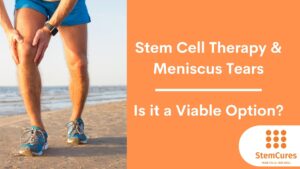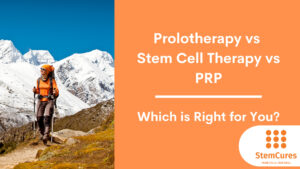Does Stem Cell Therapy Use Your Own Stem Cells?
One of the most popular questions that we get asked is if we use our patient’s own stem cells for their treatment. It’s an important question to ask your stem cell therapist in the initial consultation, as their answer can help you understand what types of procedures they perform.
Yes, Stem Cell Therapy can Use Your Stem Cells
In short, yes, stem cell treatments can be performed using your own stem cells. In fact, using your own stem cells are one of the safest methods of stem cell therapy. These types of stem cells are called adult stem cells, and can be your own, or come from another person.
In this article, we will cover the different types of stem cell treatments, and if you’re considering stem cell therapy, which might be best for you.
Explanation of Stem Cell Therapy
Stem cell therapy is a type of medical treatment that uses stem cells to repair or replace damaged cells, tissues, or organs in the body. Stem cells are undifferentiated cells that have the ability to differentiate into different types of cells and can divide to produce more cells.
Stem cells can be obtained from various sources, including bone marrow, umbilical cord blood, and adipose tissue. Once obtained, these cells can be manipulated in a laboratory to differentiate into specific types of cells, such as nerve cells, heart cells, or liver cells, which can then be transplanted into the patient’s body to repair or replace damaged tissue.
Stem cell therapy has the potential to treat a variety of conditions, including cancer, Parkinson’s disease, and spinal cord injuries, among others.
Using Your Own Stem Cells
Stem cell therapy can use your own stem cells, known as autologous stem cell therapy, or stem cells from a donor, known as allogenic stem cell therapy. The choice of which type of therapy to use depends on various factors, such as the specific condition being treated and the availability of suitable stem cell sources.
Autologous stem cell therapy is often preferred because there is a lower risk of rejection or adverse reactions, but allogenic stem cell therapy may be necessary if a patient’s own stem cells are not suitable or available.
Therefore, it is important to consult with a healthcare provider to determine the best treatment option for your individual needs.
The Different Types of Stem Cell Therapy
There are two main types of stem cell therapy: autologous and allogenic stem cell therapy.
Autologous Stem Cell Therapy
Autologous stem cell therapy uses stem cells from your own body to treat a condition. These stem cells can be obtained from various sources, such as bone marrow or adipose tissue. Once the stem cells are extracted, they are processed in a lab and then transplanted back into your body. Because the cells are from your own body, there is a lower risk of rejection or adverse reactions.
One example of autologous stem cell therapy is hematopoietic stem cell transplantation, which is commonly used to treat blood cancers such as leukemia and lymphoma. In this procedure, stem cells are harvested from the patient’s bone marrow or blood, and then transplanted back into their body after chemotherapy or radiation therapy.
Allogenic Stem Cell Therapy
Allogenic stem cell therapy, on the other hand, uses stem cells from a donor to treat a condition. These stem cells can come from various sources, such as umbilical cord blood or bone marrow. Before transplantation, the donor stem cells are carefully screened for compatibility with the recipient’s immune system to minimize the risk of rejection.
Allogenic stem cell therapy is commonly used to treat conditions such as sickle cell anemia, immune deficiencies, and certain types of cancer. One example of this type of therapy is the use of umbilical cord blood stem cells, which are collected from the umbilical cord after a baby is born and stored for future use. These stem cells can be used to treat a variety of conditions, and because they are collected from a newborn, there is a lower risk of contamination or infection.
Benefits and Considerations for Each
Autologous Stem Cell Therapy
Benefits
- Lower risk of rejection or adverse reactions
- Potential for faster recovery and improved outcomes
- No risk of transmitting infections from donor to recipient
Considerations
- Possibility of collecting insufficient or low-quality stem cells
- Risk of infection or contamination during the harvesting and processing of stem cells
- Risk of complications associated with the transplant procedure, such as bleeding or infection
Benefits of Allogenic Stem Cell Therapy
- Availability of a wider range of stem cell sources
- No need for the patient to undergo a harvesting procedure
- Ability to obtain a larger number of stem cells for transplantation
Considerations for Allogenic Stem Cell Therapy:
- Risk of rejection or adverse reactions due to differences in immune systems between the donor and recipient
- Risk of transmitting infections from donor to recipient
- Possibility of developing graft-versus-host disease, a condition where the donor’s immune cells attack the recipient’s body.
Which type of stem cell therapy is right for you?
Determining which type of stem cell therapy is right for you depends on several factors, including the specific condition being treated, the availability of suitable stem cell sources, and your overall health and medical history.
Consulting with a healthcare provider is crucial in making an informed decision. They can help evaluate your individual case and determine which type of therapy may be most appropriate for your needs. They can also discuss the potential benefits and risks of each type of therapy, as well as any alternative treatment options.
Ultimately, the decision of which type of stem cell therapy to pursue should be made in partnership with your healthcare provider, taking into account your individual circumstances and treatment goals.
StemCures is Here for You
Dr. Alturi and his team at StemCures have extensive experience and expertise in providing stem cell therapy to patients. With a commitment to patient safety and care, they use the latest scientific advancements and technologies to provide personalized treatment plans that are tailored to each patient’s unique needs.
Dr. Alturi’s comprehensive approach to patient care includes thorough evaluations, detailed discussions of treatment options, and ongoing monitoring and support throughout the treatment process. If you are considering stem cell therapy, you can trust Dr. Alturi and the team at Stemcures to provide you with the highest level of care and expertise.













